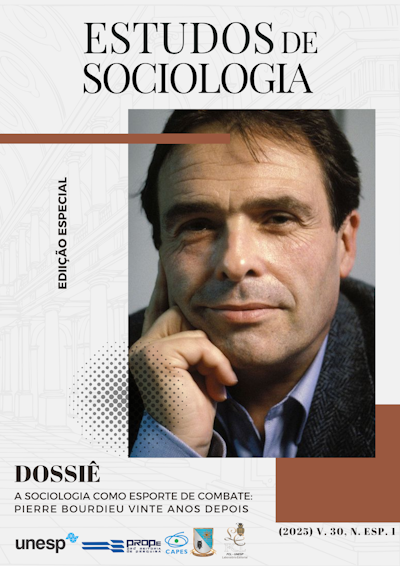Hotéis e hoteleiros no litoral
sociogênese da ocupação à beiramar Maceió-AL (1900-1979)
DOI:
https://doi.org/10.52780/res.v30iesp1.19304Palavras-chave:
Sociologia Econômica do Litoral, Espaço Social Reificado, Sociogênese, Prosopografia, Capacidade de CargaResumo
A litoralização suscita o cálculo da capacidade de carga do litoral. Neste artigo, usamos a sociologia de Pierre Bourdieu para argumentar que uma sociogênese da ocupação do litoral precede o cálculo de sua capacidade de carga. Pressupomos que o espaço físico do litoral é um espaço social reificado, pois reflete as lutas simbólicas de seus agentes sociais. Usamos a prosopografia para desenhar os primeiros contornos do espaço social dos hoteleiros à beira-mar em Maceió, estado de Alagoas, entre 1900 e 1979. Nossos resultados mostram três tipologias de hotel: o hotel palacete, o hotel vertical-moderno e o resort pé-na-areia, que ocupam posições distintas no campo de acordo com a distribuição de capitais de seus hoteleiros. Os fatores determinantes que distinguem os agentes sociais são capital cultural (escolaridade) e capital social (pertencimento a associações de hotéis) no eixo horizontal e capital econômico hereditário, estatal, comercial e matrimonial no eixo vertical.
Downloads
Downloads
Publicado
Como Citar
Edição
Seção
Licença

À revista Estudos de Sociologia ficam reservados os direitos autorais pertinentes a todos os artigos nela publicados.
Os artigos publicados e as referências citadas na revista Estudos de Sociologia são de inteira responsabilidade de seus autores.
A Estudos de Socilogia utiliza a licença https://creativecommons.org/licenses/by/4.0/ (CC BY), que permite o compartilhamento do artigo com o reconhecimento da autoria.



